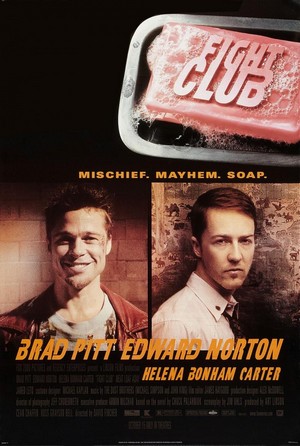
Fight Club (1999)

Raiting: ![]() 8,7 /10
8,7 /10
Genre: Comedy
Director: David Fincher
Stars: Brad Pitt, Edward Norton and Helena Bonham Carter
Country: United States
Release date: 15 October 1999
Length: 139 minutes


Raiting: ![]() 8,7 /10
8,7 /10
Genre: Comedy
Director: David Fincher
Stars: Brad Pitt, Edward Norton and Helena Bonham Carter
Country: United States
Release date: 15 October 1999
Length: 139 minutes